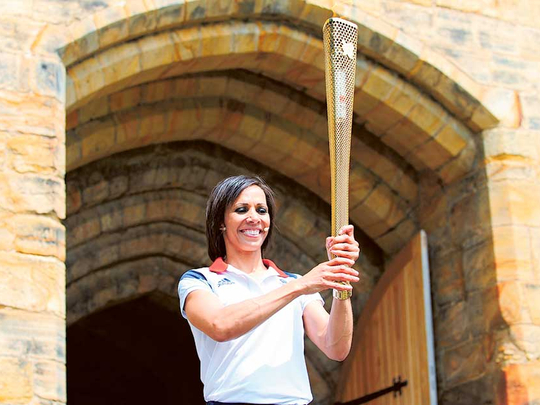
Abu Dhabi: Dame Kelly Holmes, the two-time Olympic gold medallist, insists it was “a no-brainer” that all Russian athletes should have been banned from next month’s Rio de Janeiro Games due to doping.
In an exclusive interview with Gulf News, the 46-year-old Briton also insisted doping should be criminalised and those culpable handed a minimum four-year ban.
The International Olympic Committee (IOC) on Sunday said it would leave it up to individual sports’ federations whether or not to ban Russian competitors, much to the disgust of many athletes and the World Anti-Doping Agency (Wada).
The decision follows a report in which the Canadian law professor, Richard McLaren, said Russia operated a state-sponsored doping programme from 2011 to 2015.
Dame Kelly, who claimed 800-metre and 1,500-metre gold at the 2004 Games, said “the question shouldn’t even have been asked” about whether a blanket ban on Russia should have been issued following the damning report.
“If you have the proof to have one sport banned, and you can never say there was only one sport involved, while it may well be unfair for athletes who weren’t in that system, there’s no proof they can say they weren’t either,” she told Gulf News.
“I can’t see that if you’re in a team that you wouldn’t be involved with a state doping programme if it was all about medal contenders. It’s not about making example of a country, it’s about showing that there’s proof of systematic doping.
“There are other countries that have athletes banned that have been shown to been non-compliant, such as Kenya.”
Several Russian athletes who raced against Dame Kelly have been convicted as drug cheats, including the 2003 and 2005 World Championship gold medallist Tatyana Tomashova.
“There are athletes banned that I was racing against and they won medals above me. Am I [expletive] off about that? Yes,” said Dame Kelly, who is an ambassador for the Abu Dhabi-based healthcare provider Daman.
“For me it’s about criminalising doping anyway and all the circle involved — the doctors, the scientists, the agents and the athletes involved. Unless you do that, you’re not going to get anywhere.”
Dame Kelly, who also won an 800-metre bronze medal at the 2000 Olympics and three medals at two World Championships, added that it was “a fine line” as to whether life bans should be meted out.
She pointed out that in some cases, young and impressionable athletes may have been coerced into taking banned substances by doctors as part of a state doping programme.
“A four-year ban is a really good period of time to be a deterrent as it would include one or two Olympic cycles and there’s a pretty good chance of one or two athletes not coming back to the top of their games,” Dame Kelly, who retired in 2006, said. “One or two years is pointless because someone who’s been taking something to enhance their performance will get the benefit of that long term. But if it is absolutely proven blatantly that they’ve done it, give them a life ban.”











